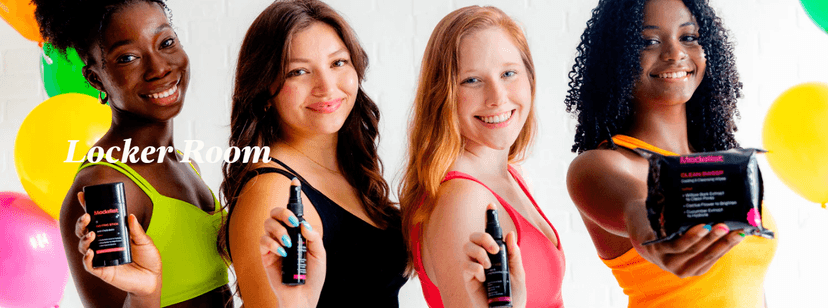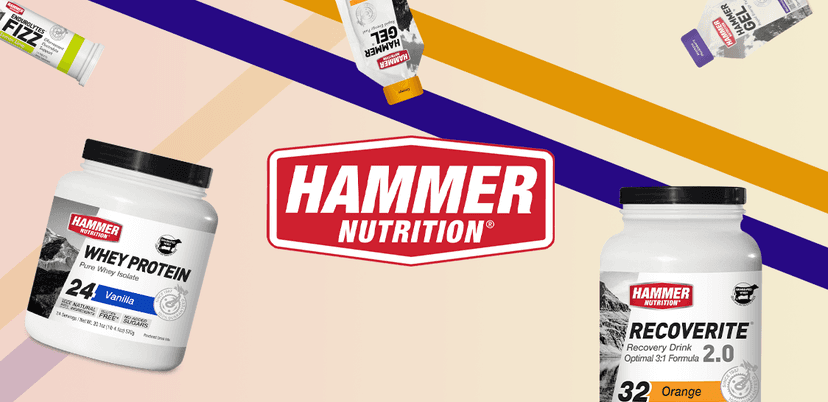Living a longer and healthier life is a goal many of us share. One of the key ways to achieve this is through regular exercise. This article will explore how different fitness routines can help you live a longer life, the best types of exercises for longevity, and how to maintain a lifelong fitness mindset.
Key Takeaways
- Regular exercise can significantly improve both physical and mental health, contributing to a longer life.
- You don't need extreme workouts to see benefits; even moderate exercise can make a big difference.
- Combining different types of exercises like cardio, strength training, and flexibility routines offers the best results.
- Setting realistic fitness goals and staying motivated are crucial for maintaining a lifelong exercise habit.
- Nutrition and exercise work together to improve overall health and longevity.
How Exercise Impacts Longevity
Physical Benefits of Regular Exercise
Regular exercise offers numerous physical benefits that contribute to a longer life. It helps improve cardiovascular health, strengthen muscles, and enhance flexibility. These improvements can lead to a reduced risk of chronic diseases and better overall physical function.
Mental Health Advantages
Exercise is not just good for the body; it's also beneficial for the mind. Engaging in regular physical activity can help reduce symptoms of depression and anxiety, improve mood, and boost cognitive function. This mental well-being is crucial for a higher quality of life as you age.
Impact on Chronic Diseases
One of the most significant ways exercise impacts longevity is by reducing the risk of chronic diseases. Regular physical activity can help manage and prevent conditions such as heart disease, diabetes, and certain cancers. This, in turn, can lead to a longer, healthier life.
Exercise is a powerful tool for enhancing both the length and quality of your life. By incorporating regular physical activity into your routine, you can enjoy numerous physical and mental health benefits that contribute to longevity.
How Much Exercise You Need to Improve Longevity
Recommended Exercise Guidelines
Experts suggest that to boost your lifespan, you should aim for 2.5 to 5 hours of moderate or vigorous exercise each week. This can include activities like brisk walking, cycling, or swimming. Interestingly, doing more than 10 hours a week doesn't seem to add extra benefits.
Balancing Intensity and Duration
It's important to find the right balance between how hard you exercise and how long you do it. Mixing moderate activities with some vigorous ones can be a good strategy. For example, you might walk briskly on some days and go for a run on others.
Listening to Your Body
Always pay attention to what your body is telling you. If you feel pain or extreme fatigue, it might be a sign to take it easy. Remember, the goal is to stay active and healthy, not to push yourself to the point of injury.
Staying active is key to a longer, healthier life. Make sure to find a routine that works for you and stick with it.
What Is the Best Exercise for Longevity?
Cardiovascular Exercises
Cardiovascular exercises, like running, swimming, and cycling, are excellent for heart health. They help improve blood circulation and reduce the risk of heart disease. Regular cardio can also boost your mood and energy levels.
Strength Training
Strength training is crucial for maintaining muscle mass and bone density as you age. Lifting weights or doing bodyweight exercises like push-ups and squats can help you stay strong and independent. It also aids in metabolism regulation.
Flexibility and Balance Exercises
Flexibility and balance exercises, such as yoga and tai chi, are essential for preventing falls and injuries. They improve your range of motion and help you stay agile. These exercises also promote relaxation and mental well-being.
Incorporating a mix of cardiovascular, strength, and flexibility exercises into your routine can lead to a longer, healthier life. Remember, the best exercise is one that you enjoy and can stick with over the long term.
Adopting a Mindset of Lifelong Fitness
Setting Realistic Goals
Setting achievable goals is crucial for maintaining a lifelong fitness routine. Start with small, manageable targets and gradually increase them as you progress. This approach helps build confidence and keeps you motivated.
Staying Motivated
Staying motivated can be challenging, but it's essential for long-term success. Here are some tips to keep your motivation high:
- Find a workout buddy to keep you accountable.
- Mix up your routines to avoid boredom.
- Reward yourself for reaching milestones.
Overcoming Barriers
Everyone faces obstacles on their fitness journey. The key is to identify these barriers and find ways to overcome them. Common barriers include lack of time, limited access to facilities, and physical limitations. Planning ahead and being flexible with your schedule can help you stay on track.
Remember, the goal is to make fitness a lifelong habit, not a temporary fix. Stay committed and be patient with yourself.
Top Exercises and Routines for Longevity
HIIT Workouts
High-Intensity Interval Training (HIIT) is a powerful way to boost your fitness. HIIT involves short bursts of intense exercise followed by rest periods. This type of workout can improve cardiovascular health, increase metabolism, and burn fat efficiently. It's a time-saving option that can be adapted to various fitness levels.
Yoga and Pilates
Yoga and Pilates are excellent for enhancing flexibility, balance, and core strength. These exercises also promote mental well-being by reducing stress and improving focus. Regular practice can lead to better posture, increased muscle tone, and a greater sense of calm.
Walking and Low-Impact Activities
Walking is one of the simplest and most effective exercises for longevity. It's easy on the joints and can be done almost anywhere. Low-impact activities like swimming and cycling are also great options. They provide cardiovascular benefits without putting too much strain on the body.
Consistency is key. Even moderate exercise, when done regularly, can lead to significant health benefits over time.
Exercise vs. Nutrition: The Role of Each in Longevity
Importance of a Balanced Diet
Regular exercise is just one piece of the longevity puzzle. Nutrition is paramount too. Dr. Roizen says that making a change from an unhealthy diet to a healthy diet makes a massive difference when it comes to longevity. Studies show that this switch can add a full decade to one’s life.
Synergy Between Exercise and Nutrition
If you want to live a long life where your body and mind are both functioning well and you have better quality of life (not just quantity of years), it’s helpful to know how exercise plays a role in that goal. Fortunately, it plays a pretty big one. If you’re curious about the connection between exercise and longevity, keep reading. It just might inspire you to make some changes to your own workout routine.
Common Myths and Misconceptions
There is some debate about what the absolute best way of eating is for longevity, but what doctors, longevity experts, and scientific researchers agree on is that a diet high in vegetables, fruits, whole grains, legumes, and primarily plant-based proteins wins out over one high in ultra-processed foods. These types of foods are known as longevity foods because they are associated with longer life and reduced mortality.
How Technology Can Support Your Fitness Journey
Using Fitness Apps
Fitness apps can be a game-changer in your exercise routine. They offer a variety of workouts, track your progress, and even provide motivation through virtual coaches. Using these apps can help you stay consistent and achieve better results. Some popular fitness apps include Peloton, MyFitnessPal, and Nike Training Club.
Wearable Fitness Trackers
Wearable fitness trackers, like Fitbit and Apple Watch, monitor your physical activity, heart rate, and even sleep patterns. These devices give you real-time feedback, helping you make informed decisions about your health. They can also set reminders to keep you moving throughout the day.
Virtual Fitness Communities
Joining virtual fitness communities can provide a sense of belonging and motivation. These communities allow you to connect with others who share similar fitness goals. You can participate in challenges, share your progress, and get support from fellow members. This social aspect can make your fitness journey more enjoyable and sustainable.
Embracing technology in your fitness routine can make a significant difference in your overall health and longevity. It offers tools and support that can help you stay on track and reach your goals.
Conclusion
In summary, regular exercise and physical activity are key to living a longer, healthier life. By incorporating a variety of workouts, from cardio to strength training, you can improve your overall well-being and longevity. It's not just about adding years to your life, but also about enhancing the quality of those years. Remember, it's never too late to start. Whether you're young or old, making exercise a part of your daily routine can lead to significant health benefits. So, lace up those sneakers and get moving towards a healthier future!
Frequently Asked Questions
How does exercise help you live longer?
Exercise helps you live longer by improving your heart health, boosting your mood, and reducing the risk of chronic diseases like diabetes and heart disease.
How much exercise do I need each week?
Experts recommend at least 150 minutes of moderate exercise or 75 minutes of vigorous exercise each week to improve longevity.
What types of exercise are best for a longer life?
Cardiovascular exercises, strength training, and flexibility exercises are all great for promoting a longer life.
Can you exercise too much?
Yes, exercising too much can be harmful. It's important to listen to your body and not overdo it.
How can I stay motivated to exercise regularly?
Setting realistic goals, finding activities you enjoy, and having a workout buddy can help you stay motivated.
Is diet just as important as exercise for longevity?
Yes, a balanced diet works together with exercise to help you live a longer and healthier life.
























